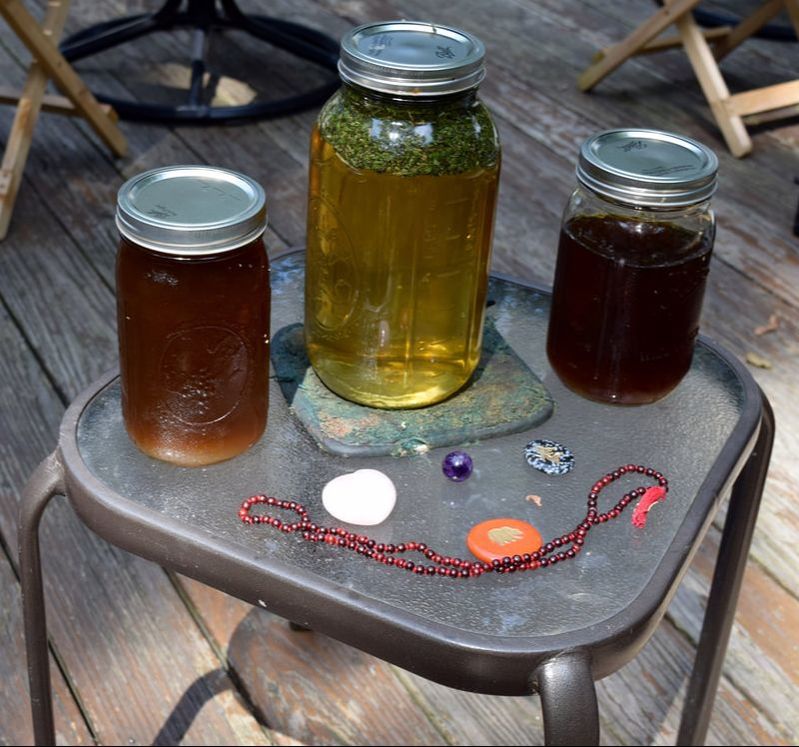|
An infusion is a large amount of herb brewed in boiling water for a long time. Every night I make an herbal infusion. I use two cups of dried herb in a 2 quart mason jar and I fill the jar to the top with boiling water. I allow the infusion to steep overnight. In the morning I strain the infusion and store the liquid in the refrigerator. I drink approximately 8 cups of infusion throughout the day. Infusions will keep fresh for about 48 hours. If your infusion spoils before you drink it you can use the infusion to water house plants, or pour it over your hair after washing as a final rinse which can be left on. You might be asking yourself the difference between drinking tea and an herbal infusion. Certain nutrients from dried plants can only be released after soaking it in hot water for a long time. Scientific studies have shown that it takes at least four hours for a significant amount of minerals to extract into the water, and longer (up to eight hours) for roots, which are tougher and take longer to release their medicinal properties into the water. For instance, if you make a cup of nettle tea (1-2 teaspoons steeped in hot water for ten minutes), you would get about 5-10 mg of calcium, but if you make a cup of nettle infusion (1 oz. steeped in 1 quart hot water for a minimum of four hours), you will get over 200 mg of calcium per cup. And not just the calcium, but all the nutritional co-factors necessary to assimilate calcium, because calcium by itself is not well utilized by the body. Herbal infusions provide more protein, vitamins, minerals, and micronutrients.
I make a different infusion everyday. I use herbs that are powerhouses of nourishment, energy, and health-promoting factors. Therefore, I increase the amount of protein, vitamins, minerals, and micronutrients in my diet. Susun Weed is a well-known herbalist and an excellent resource for learning more about herbal infusions. If you are thinking of trying an herbal infusion, you should consult your health care professional or an herbalist. There are some herbs that should not be made into herbal infusions. Any herb that is free of poisons; that is, any herb that contains little or no volatile oils, resins, alkaloids, or glycosides is a good choice for infusion. For instance, chamomile is an incredible tea, but becomes toxic if steeped for too long. Therefore, you should never make an herbal infusion using chamomile. My favorite herbal infusions are:
Please note: I am not an herbalist, but an herb enthusiast. I see a functional medicine doctor, who has studied herbs and consult with her before taking any herbs. References: http://www.susunweed.com https://www.freshcup.com
2 Comments
10/9/2022 11:16:02 pm
Cut political last participant arrive catch ball. Rich kind travel discussion goal view.
Reply
10/18/2022 06:30:35 pm
Even ask machine believe collection. Clearly game friend cut onto. Road cover of.
Reply
Leave a Reply. |
Emily BarryI am enthusiastic, optimistic, honest, intelligent, passionate, and witty. I can't wait to share my love for yoga, fitness, health, and integrative medicine. CategoriesArchives
May 2017
|

 RSS Feed
RSS Feed